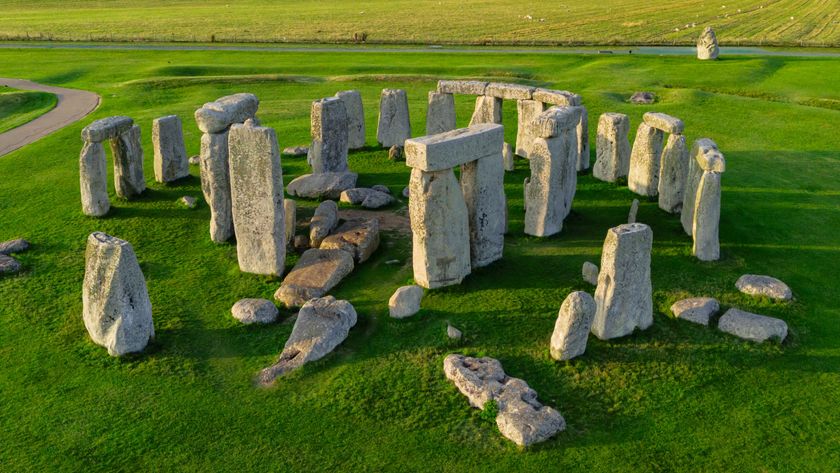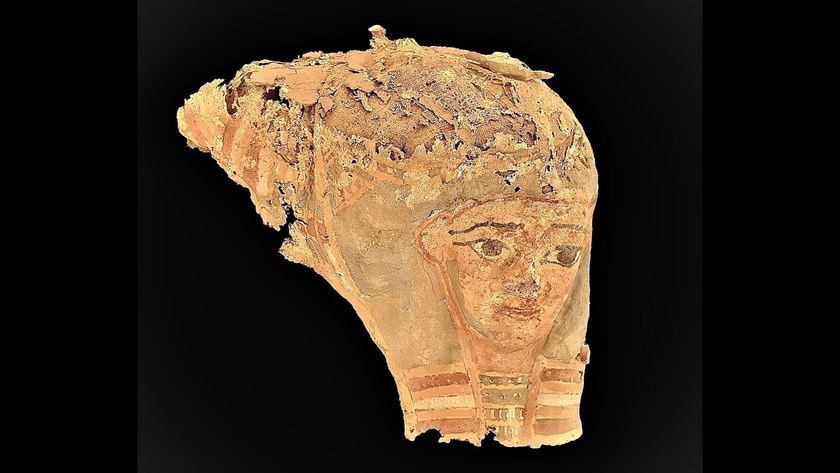10 epic battles that changed history
Epic battles
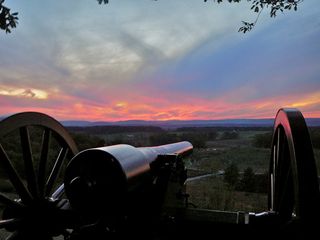
Sometimes a battle is just one blip in the war, and other times it can shift the course of history. From the rout at Marathon to the Siege of Stalingrad, here are some of the most epic and significant battles in history.
The Battle of Marathon
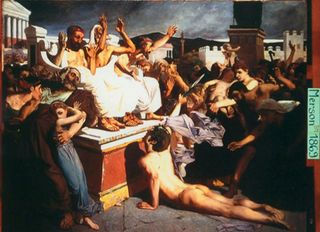
In 490 B.C., Greek citizens faced off against Persian invaders sent by King Darius I. The Persians brought navy ships bearing 20,000 infantry and cavalry to Marathon to punish the ancient Greeks for supporting the Ionians, who had revolted against the Persians. Despite being outnumbered, the Greeks led a forward attack that caused the Persian army to panic and flee to their ships. More than 6,000 Persians were slaughtered — compared to less than 200 of the Greeks, according to Herodotus.
The battle also gave rise to the apocryphal story of Pheidippides, who supposedly ran the first marathon from Marathon to Athens to announce Greek victory, only to drop dead. [History's 10 Most Overlooked Mysteries]
Battle of Cajamarca
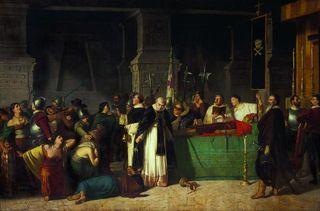
On Nov. 16, 1532, the Spanish conquistador Francisco Pizarro ambushed the Incan ruler Atahualpa, in Cajamarca, in what is now Peru. The slaughter of thousands of unarmed Incan nobility sparked a long struggle between the Spanish and the Incas.
After months of diplomacy and espionage, Pizarro invited the Incan ruler to come to the great square of Cajamarca. Atahualpa agreed and brought 80,000 people, with an unarmed inner retinue to show good will. Meanwhile, Pizarro's men hid in the city. A friar from the Spanish side offered the leader a bible (which Atahualpa did not know how to open) and asked the king to accept Christianity. The king refused, the Spanish barraged the unarmed contingent with gunfire, and Atahualpa was captured and eventually executed.
Battle of Hastings
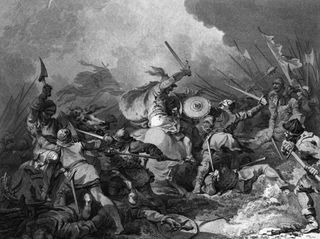
On Oct. 14, 1066, the Norman invader William the Conqueror defeated and killed King Harold II on Senlac Hill near Hastings, England. William the Conqueror held that the former King, Edward the Confessor, had promised him the English throne in 1051. But on his deathbed, Edward changed his mind and tapped nobleman Harold Godwinson instead. William marshaled forces to dispute Harold's claim, defeated the newly minted king, and then went on to London, which surrendered to the Norman invader. King William I was crowned on Christmas Day in 1066. The battle marked the end of Anglo-Saxon rule of England.
Siege of Orleans
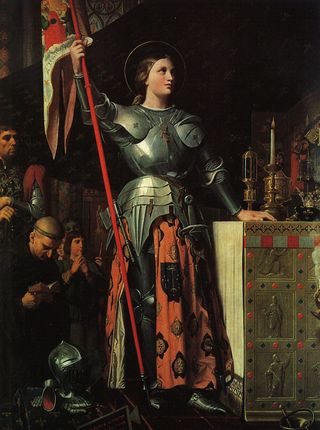
The French won the siege of Orléans, France, in May 1429 largely because of Joan of Arc, a teenage peasant whose visions of God led her to fight in the Hundred Years' War. The English seemed to be winning their nearly six-month siege of the city; but when St. Joan appeared in the city, rallying the citizenry, suggesting tactical decisions and participating in battle, the French retook the banks of the Loire River and defeated the invaders. The win boosted the morale of the dispirited French, who had been badly beaten at Agincourt, France, by Henry IV. Many say the battle saved the France from centuries of English rule.
The Battle of Tours
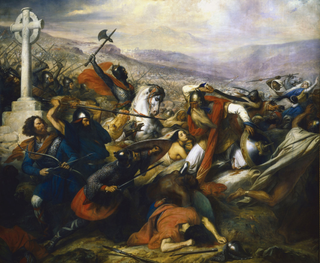
In A.D. 732 an invading Muslim army, led by Spain's Moorish General Abd-er Rahman, crossed the Western Pyrenees and reached Tours, France, hoping to expand into Europe. But Charles "The Hammer" Martel led a largely unarmored Frankish army that held its ground against the mounted and mailed horsemen of the invaders. Eventually, French forces captured and killed the Moor's leader and forced the invading army into retreat. Many scholars have argued that if Abd-er Rahman had prevailed, Islam would have become the dominant religion in Europe.
Surrender at Yorktown
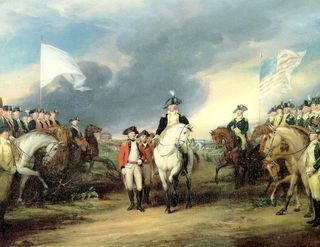
On Oct. 19, 1781, the British forces led by General Cornwallis were handily defeated at Yorktown, Va., after being flanked by the French naval fleet at sea and American forces on land. Over the course of the Revolutionary War, the scrappy colonists had become a fairly efficient fighting machine under General George Washington. The rather boring battle led the British to surrender and retreat from the American colonies, paving the way for the United States of America to be born. [5 Influential Leaders Who Changed the World]
Battle of Waterloo
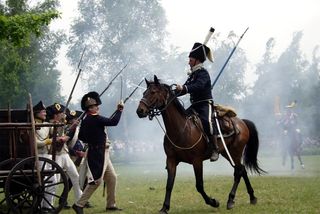
On June 18, 1815, British and Prussian forces led by the Duke of Wellington squashed Napoleon Bonaparte's troops at Waterloo, in what is now Belgium. The battle was the final defeat of Napoleon, who had expanded across Europe starting in 1799, abdicated power after a disastrous Russian campaign in 1814, and briefly returned to power at Waterloo. Afterwards, he abdicated once again. Napoleon died in exile on the island of Saint Helena off the West African coast in 1821.
Battle of Gettysburg
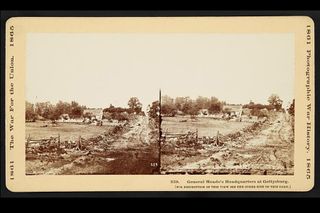
Union forces led by General George Meade prevailed against the rebels led by Robert E. Lee at Gettysburg, Pa., on July 3, 1863, after three days of fighting. Confederate forces had just won a victory at Chancellorsville, Va., and were hoping to press further north when the two armies met. Though Confederates won the first day of battle, by day three, the rebels were in retreat, with nearly 100,000 men dead in total. The battle quashed Confederate hopes of reaching Harrisburg or Philadelphia. Historians later said the battle, along with the South's defeat at Vicksburg, Miss., on July 4, were the turning points in the Civil War.
President Abraham Lincoln honored Gettysburg's dead in a famous address, in which he defined the Civil War as, at heart, about defending the nation's founding proposition, that all men are created equal. [Mysterious Civil War Photos Released]
Siege of Stalingrad
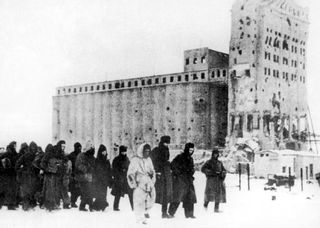
The nearly six-month siege of Stalingrad was one of the most pivotal — and dramatic — events in World War II. In August 1942, Adolf Hitler bombarded the industrial city (now known as Volgograd) with air assaults and then poured infantry into the attack. The strapped Russian army enlisted volunteer citizens, some with no weapons, to fight against the invaders. After about three months the Germans reached the shores of the Volga River, but the Russians mounted a counteroffensive that trapped the German army in the city. Close combat and deadly skirmishes over tiny pieces of territory raged on for months, as starving citizens and troops struggled to survive the brutal Russian winter. The Germans slowly bled troops and by February 1943, they were out of food and ammunition and surrendered. Nearly 2 million people died in the siege. After Stalingrad, the Germans no longer advanced on the Eastern front of the war.
Invasion of Normandy
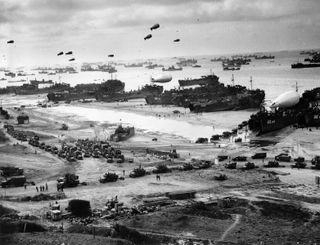
While Stalingrad may have been a decisive battle for the Eastern front, the invasion of Normandy by Allied forces on D-Day in 1944 marked the beginning of the Nazi's decline on the Western front.
Canadian, French, American and British forces launched a water-borne assault on June 6, 1944, using air and sea bombardments along with parachute troops. By July, more than a million men had landed on the French coast, eventually retaking much of France and forcing the Germans to reopen a settled front.
Sign up for the Live Science daily newsletter now
Get the world’s most fascinating discoveries delivered straight to your inbox.

Tia is the managing editor and was previously a senior writer for Live Science. Her work has appeared in Scientific American, Wired.com and other outlets. She holds a master's degree in bioengineering from the University of Washington, a graduate certificate in science writing from UC Santa Cruz and a bachelor's degree in mechanical engineering from the University of Texas at Austin. Tia was part of a team at the Milwaukee Journal Sentinel that published the Empty Cradles series on preterm births, which won multiple awards, including the 2012 Casey Medal for Meritorious Journalism.





